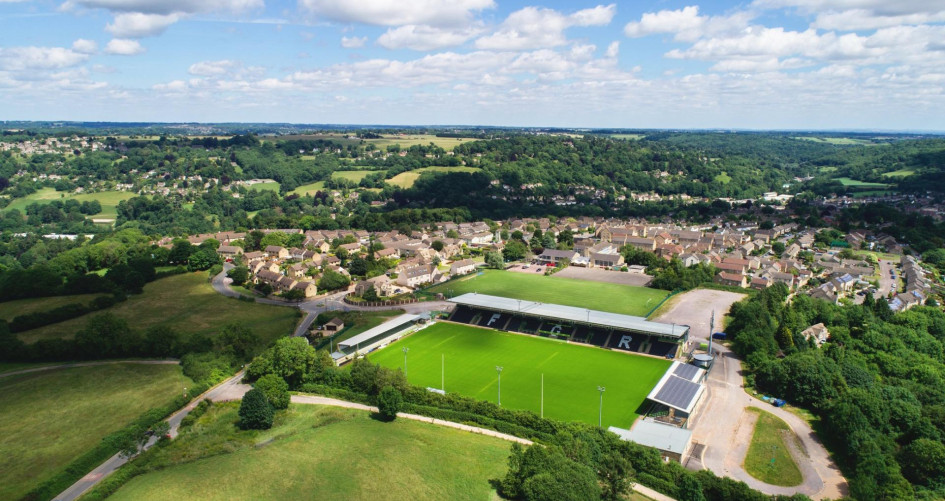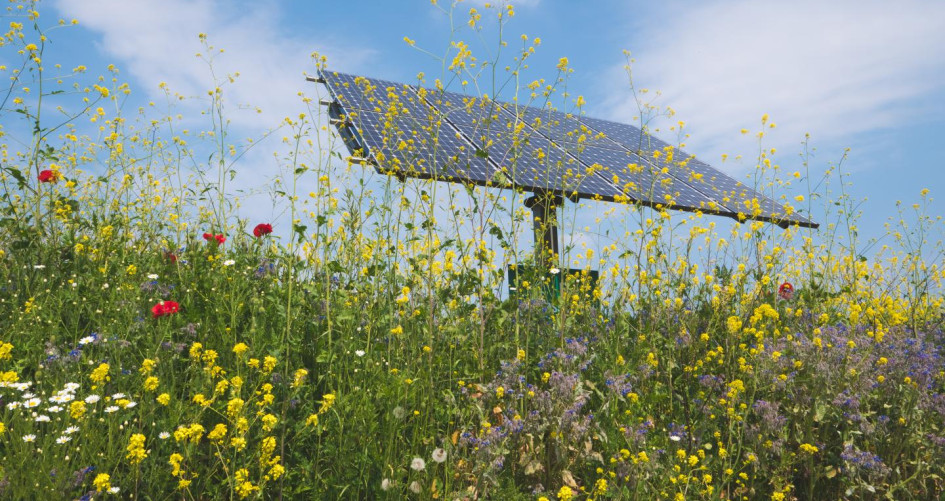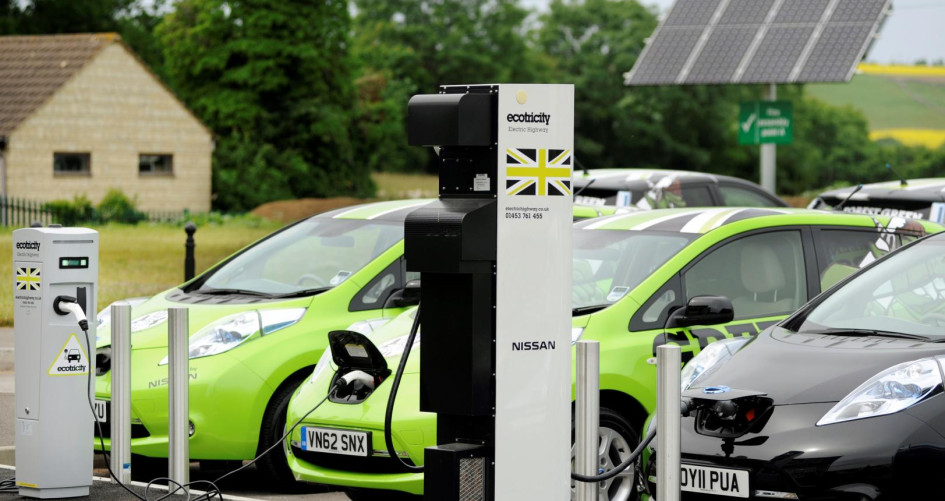The Forest Green Rovers is bringing eco-thinking and technology to a new and large audience: football fans. In 2010, the team began its journey to becoming the world’s first carbon neutral football club and has since been described by FIFA, as “the world's greenest football club”.
The Forest Green Rovers, based in Gloucestershire, England, introduced many sustainability measures, including solar panels, electric car charging points, water recycling, an electric lawnmower, an organic pitch, and an entirely vegan menu for players and fans.
Key facts
- Forest Green Rovers’ absolute carbon footprint has decreased by 3% since 2017;
- Its carbon footprint per spectator has decreased by 42% since the 2011/12 season;
- In 2016/17, the team recycled over 8% of the water used from the main water supply;
- The project decreased the amount of waste produced in the 2017/18 season by 14.7%;
- The Forest Green Rovers is the only club to have Eco-Management and Audit Scheme (EMAS) accreditation.
The problem
Football clubs can have a large impact on the environment. Keeping a pitch in top condition requires water, heating to prevent freezing, and energy intensive lighting rigs for grass growth.
Floodlights, video screens, and scoreboards can have large electricity demands, while over 5,000 fans traveling to and from matches emit carbon dioxide and generate huge amounts of waste.

The solution
The Forest Green Rovers team is addressing these concerns and lowering its carbon emissions by reducing energy consumption, altering players’ diets and what fans are served on game days, and reducing demand for heat, light, and water on site.
The team is making a significant amount of the energy used at their home stadium, The New Lawn in Nailsworth, through installation of solar cells and is the first football club to adopt a completely vegan diet, an effective way to combat climate change. Food production, especially the meat and dairy industries, have a massive impact on climate and natural resources.
The team has also installed charge points to make it easier for players and visitors to use electric vehicles and has provided a “park-and-ride” scheme to reduce congestion and vehicle emissions.
Helping the planet
The New Lawn, the world’s first organic football pitch, sits on a 2.84-hectare grassland site just outside the Cotswolds Area of Outstanding Natural Beauty. The site comprises a range of plant species and is visited by wildlife, badgers and small owls, from neighbouring farmland and a border of native trees.
Rainwater is collected and recycled around the stadium; all waste cooking oil is recycled into biofuel; and the pitch is mowed by the first solar powered robotic lawn mower to be used in British football. The 'mow bot' uses GPS technology to automatically guide it around the pitch without the need for human intervention. Local farmers use the grass cuttings from the stadium to condition their soil.
The entire club is powered by 100% green energy from power firm Ecotricity, some of which is generated onsite from solar panels on the stadium roof and a solar tracker at the grounds entrance.

Helping people
The Forest Green Rovers engages the local and global community through various programmes designed to make a lasting impact.
The team draws fans from all over the world through press engagement and social media. Since May 2017, the team has reached almost 3 billion people through local, national and international press.
This reach has led to a big uplift in crowd numbers at The New Lawn; average attendance has quadrupled since 2010.
Locally, the team spreads the word about sustainability through its Ambassador Scheme, which provides a valuable link between the Forest Green Rovers and local schools. By becoming ambassadors, students have the unique opportunity to see how the team has developed its ‘green’ agenda and how the club’s values are supported and upheld by the players.
The team also runs a free educational programme for schools and the local community called Fit2Last. The programme teaches the benefits of sport, health and sustainability through tailored lessons, tours and school visits from team players.
Spillover effect
Local businesses have benefitted hugely from the Forest Green Rovers green activity. Attention by the media has brought an increasing number of visitors to the area. In fact, many of the fans themselves are replicating their team’s green vision by becoming vegan, buying electric cars, and living more sustainably.
The Forest Green Rovers regularly advises other sports clubs looking to emulate their environmental approaches, whether by introducing vegan options on their menus, installing solar panels (as Arsenal FC has done), or adding electric car charging points.




Images owned by the activity partners, all rights reserved.





